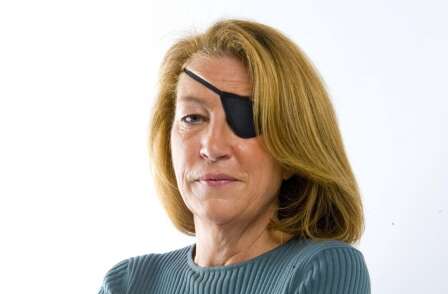
A new campaign to secure the prosecution of those who commit war crimes against journalists and photographers is being launched today – the first anniversary of the death of former Sunday Times war reporter Marie Colvin.
The initiative – called ‘A Day Without News?’ – was founded by a group of journalists led by former Sunday Times picture editor Aidan Sullivan, now vice president of Getty Images.
It comes after what the Committee for the Protection of Journalists says was the deadliest year on record for journalists, which included the death of Colvin and French photojournalist Rémi Ochlik in a rocket attack by the Syrian army on 22 February 2012.
Eighty-eight other journalists were killed in suspected war crimes last year. And since 1992 a total of 971 have died in combat zones, of which 588 were said to have been killed “with complete impunity”.
A Day Without News has three main goals: to draw more attention to the growing numbers of journalists killed and injured in armed conflict; develop a legal agenda to fight the rise in war crimes against journalists; and investigate and collect evidence in support of prosecutable cases.
“It is unacceptable that those looking to report objectively from conflict zones around the world are deliberately singled out, targeted and murdered with impunity, with those responsible for their deaths not facing any repercussions,” said Sullivan.
“Without these journalists bearing witness, atrocities committed in war would go unremarked and it is an equal cruelty that their deaths go without justice.
“We are heading towards a day when it will be too dangerous for journalists to enter into or report from war zones.”
The idea for the campaign came after a panel discussion at the United Nations headquarters in New York on 15 August 2012 to introduce the winner of the World Press Photo Awards.
Along with Sullivan other speakers that day included the photographer Lynsey Addario, the managing director of photo agency VII Stephen Mayes, and deputy managing director of World Press Photo Maarten Koets.
They have since become key supporters of A Day Without News? along with the likes of The Sunday Times Magazine’s director of photography Jon Jones, BBC News senior producer Louise Kerslake, and British photographer Paul Conroy, who was with Colvin when she was killed in the war torn city of Homs.
All of the campaign’s key supporters have either found themselves the target of violence or had friends and loved ones killed in combat zones.
At the World Press Photo Awards debate Sullivan asked whether there was a better way to legally protect journalists and draw more attention to their plight.
Later that night, over drinks at photographer Steve Pyke’s New York bar Kingston Hall with other journalists, he recalled a conversation with Yves Daccord, the director general of the International Committee of the Red Cross, about raising awareness of the dangers faced by journalists in conflict.
Addario, who was abducted in Libya in 2011, instantly warmed to the idea, believing it would remind people of the loss of journalists such as Colvin, Tim Hetherington and Ochlik.
Also Kingston Hall that night was David Friend, Vanity Fair’s editor of creative development, who would later coin the campaign name A Day Without News?
Among the supporters is Marie Colvin’s sister Cat, who commented: “My family is so deeply appreciative of the efforts of Aidan Sullivan and the A Day Without News? campaign, for raising awareness not only of my sister’s murder at the hands of the Syrian government but of the growing numbers of journalists and photographers who are targeted in war zones throughout the world every day.
“I am particularly touched that February 22, the anniversary of Marie’s death, would be selected as the day to launch this critically important effort.”
Ochlik’s girlfriend is another backer. “It’s really important to show the world not as we imagine it but the world as it is: beautiful, amazing but so, so vicious,” she said.
“And photographers and journalists do this every day, every hour. Some of them die for this. We have to make the general public sensitive to the importance of the press.
“One year ago, on 22 February, Rémi Ochlik died in Syria doing his job, and because he was doing his job, he was targeted, and still, nobody has been accused or arrested.
“The murder of journalists and photographers carries on with impunity. Rémi Ochlik’s family and I are really touched by the A Day Without News? campaign, we support this project because we want reporters to go everywhere, and especially we need them to come back safe and sound to continue their work.”
Colvin’s former foreign editor at The Sunday Times Sean Ryan, who is involved in the campaign, said: “It does show that something positive can come out of something terrible.
“The campaign is a huge credit to Aidan Sullivan and I hope it is a success.”
The Sunday Times also announced this week the recipient of the year-long, fully-paid Marie Colvin Scholarship at The Sunday Times. According to the paper, it received more than 400 applications for the scheme.
“The scholarship had a fantastic response,” said Ryan. “We chose a very good winner, George Arbuthnott, coming from the Mail on Sunday.”
He said Colvin’s family had taken great comfort from the fact that this scheme, as well as the A Day Without News?, had been set up.
Email pged@pressgazette.co.uk to point out mistakes, provide story tips or send in a letter for publication on our "Letters Page" blog

